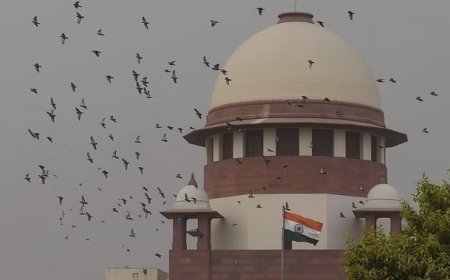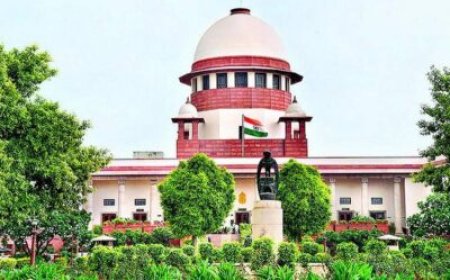SOCIALIST PARTY EMERGED AS THE MAIN OPPOSITION PARTY IN THE FIRST PARLIAMENTARY ELECTION AFTER INDEPENDENCE IN THE YEAR 1952
THE FIRST MP OF THE THEN SHAHABAD DISTRICT, CONGRESS LEADER BALIRAM BHAGAT GOT 40.77 PERCENT VOTES
Ara (RNI) After Independence of India, the first Parliamentary Elections were held from October 1951 to February 1952 in which the Congress Party candidate Baliram Bhagat was trying his luck from the Bhojpur district and after the election result he got 40.77 percent votes and was declared victorious whereas the main opposition party the Socialist Party got 21.28 percent votes and remained on second position. Along with the Bharatiya Jansangh candidate, the Communist Party of India and five independent candidates had also contested the first Parliamentary election.
In the first general election and even in many other general elections thereafter, loudspeaker was not used. People used to raise slogans in support of their candidates verbally and so the general masses did not face any problem and there was also no noise pollution situation like today.
It was not so easy to conduct elections at that time. The voters list was typed ad matched. Different coloured ballot boxes were allotted to each candidate at the polling booths on which the name and election symbols of each candidate was written. Earlier the minimum age limit for citizens to vote in the general elections was set at 21 years and citizens below this age did not have the right to vote.
It is a matter of pride for Shahabad-Patna, Shahabad and now Ara Parliamentary Constituency that its MP Baliram Bhagat held the important post of Speaker of the Lok Sabha from January 1976 to March 1977. Baliram Bhagat was the first MP from Bihar to hold the post of Speaker of the Lok Sabha and after him only Meira Kumar from Sasaram Parliamentary Constituency held the prestigious post. Baliram Bhagat won the MP elections from the Ara Parliamentary Constituency six times followed by Chandra Dev Prasad Verma and now Raj Kumar Singh. Sukumar Sen was made the Chief Election Commissioner before the 1952 Parliamentary Elections.
After the Independence of the country, from the first Parliamentary Elections in the year 1952 till now till 2024, the Lok Sabha elections have seen many colours and changes. Be it the style of election campaign or the expenditure of candidates during elections, everyone has gone through many phases. Earlier, candidates used to campaign on bicycles while some party candidates and independent candidates used to campaign on foot. Congress candidates also used to campaign with just one of two jeeps. The situation was such that during campaigning, candidates and their supporters used to spend night in the same village where it became night. During this time, the villagers used to arrange for them accommodation and food with full respect.
Some elders say that at that time, party candidates and other independent candidates had to spend very limited money in the election and on the contrary, people used to donate money to contest elections on their behalf. The donated money varied from Rs.1 to maximum Rs. 5. The election was not expensive like today. Candidates did not spend crores of rupees. Many candidates also did not put up pamphlets and banners. Due to small number of candidates, fewer ballot boxes and smaller sized ballot papers had to be made. Though today the elections whether it may be Parliamentary elections or Assembly elections or elections for the post of Mukhias, candidates spend crores of rupees in their campaign or to woe the voters in their favours. Surprisingly, lakhs of rupees are now spent in the Student Union elections in the country.
During the first Lok Sabha elections, the Election Commission had to struggle a lot due to very low literacy rate in the country. The employees who were assigned election duty had to go door to door to register voters which were a very challenging and thankless job. The situation was such that according to tradition women did not tell the names of their husbands. When asked their names, they introduced themselves as so-and-so’s mother. Elders say that there were limited resources for transportation at that time so it was a very challenging task to transport the ballot boxes to polling booths. Workers used to take ballot boxes to the polling centre on foot.
What's Your Reaction?
 Like
0
Like
0
 Dislike
0
Dislike
0
 Love
0
Love
0
 Funny
0
Funny
0
 Angry
0
Angry
0
 Sad
0
Sad
0
 Wow
0
Wow
0

































































































































































